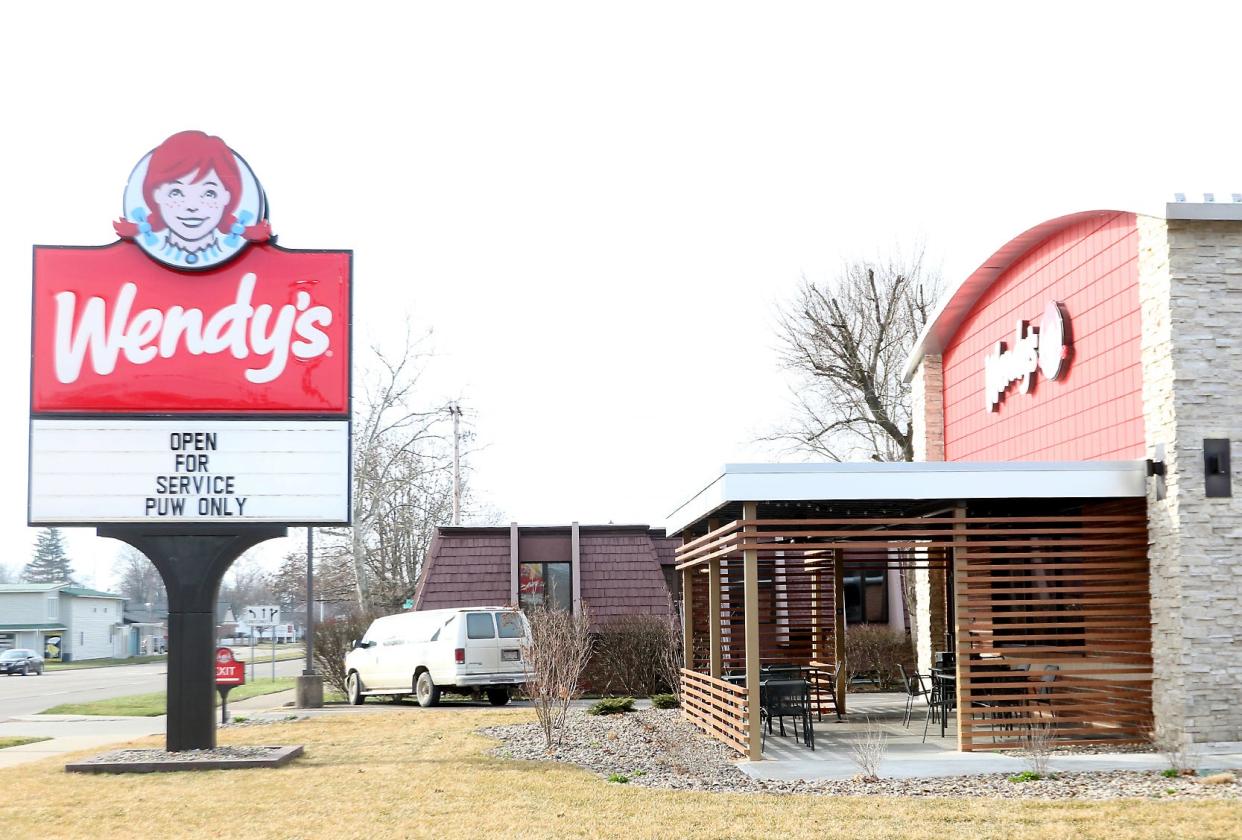Wendy's owner feels pinch as workers become in short supply

- Oops!Something went wrong.Please try again later.
DOVER — Chris Lane, owner of seven Wendy's restaurants in east central Ohio, took to Facebook in December, begging for help to fill multiple job vacancies at his business.
"I know that this is a familiar post many of you have seen, but here goes: I am in DIRE NEED of Multi-Unit and Single Unit senior managers," he wrote.
"YES, you will have to work many nights, YES you will have to work most weekends (partially), YES you will work many holidays (partially), YES you will work in a high stress, fast paced environment. BUT, you WILL serve the best food on the planet, you WILL have autonomy and freedom to make decisions, you WILL be the face of the business in your community, you WILL grow and develop your own team."
Lane, like many owners in the food service industry, is facing a severe shortage of workers.
He owns restaurants in Dover, New Philadelphia, Uhrichsville, Newcomerstown, Bolivar, Carrollton and Alliance and is in the process of opening a new one in Coshocton.
Lane is short more than 50 people, full-time and part-time, and has seven to 10 management positions open.
"I would take 50 full-time employees tomorrow," he said.
In the last 30 days, two of his restaurants received three applications, which included high school kids, people looking for a second job or a part-time job.
"Really, one of the things that's happened, especially for us, is people have exited food service in terms of a preferred employer, and part of that's because of manufacturers," he said. "They have a different pay scale than we do. They're now competing for the same people we would.
"Our pay scale has accelerated much faster than theirs has, so we're catching up."
Industry experts estimate that 800,000 people have left the food service industry, mostly to change industries.
"It's hard work. We're open late at night. It's harder now to be appealing to folks who've been conditioned to believe you can work from home," he said.
"The other issue is many of the employees that we have been good at landing are now stuck in limbo or uncertainty. Is my kids' school going to be in-person or remote or blended? Is my daycare going to be open or closed?
"It's harder for many of these single parents, moms, dads, whatever it is, to commit to a job because of some of the uncertainty around what's it going to look like tomorrow."
He said the demand at his restaurants hasn't changed during the pandemic, but he has fewer employees serving the same amount of customers.
"It gets tiring," he said. "We've been going at this pace for almost two years. That's why some people have left because of burnout."
At the same time, the complexity of the job has grown. Not only are his employees serving drive-thru and dine-in customers, they are also filling delivery orders and mobile and online orders.
"There's only so much you can do. Eventually people just decide, I've had enough, I want to try something different," he said.
The job is very labor intensive.
"None of our food is made until it's ordered," Lane said. "It takes humans to make the food, prepare the food, prep the food, and when you reduce the number of available employees, everything starts to stack up."
His employees leave knowing they can find another job within a mile of one of his locations.
"It's a dog eat dog world out there," Lane said. "We're all looking to fill the demand and it's not just demand on our customer side, it's demand for the labor pool."
Scott Robinson, chief executive officer of the Tuscarawas County Chamber of Commerce, said the worker shortage is widespread in Tuscarawas County in fields such as retail and manufacturing, as well as food service.
"There's a lot of competition now for employees," he said.
Smaller restaurants have been hard hit by the shortage. If they only have four or five employees and some of those employee contract COVID-19, they have to shut their doors, he said.
"It's very dire for some businesses," Robinson said.
What does Lane see as the solution to the problem?
"Stay positive and do the right thing," he said. "Take care of your people. One, be committed to the people that are willing to work. Don't treat people who call in sick horribly or poorly because they're putting you on additional pressure. We know it's a reality, so stay focused on the right thing. Treat your people right.
"Be very competitive in wages and benefits or quality of work, and really just make sure that your environment is one that people would even consider for employment."
This article originally appeared on The Times-Reporter: Wendy's owner feels pinch as workers become in short supply

